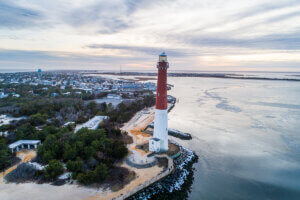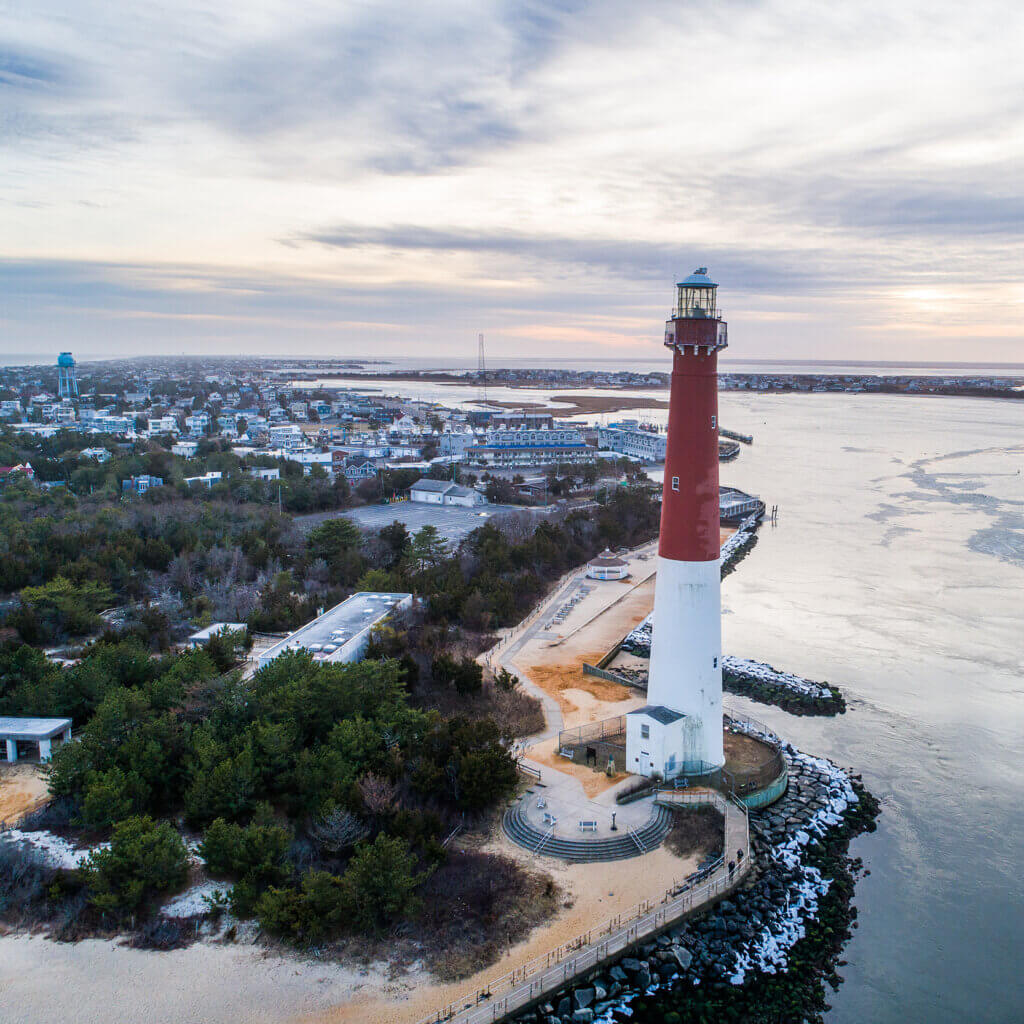The Monmouth University Urban Coast Institute (UCI) has received $1 million in state funding to establish the New Jersey Coastal Consortium for Resilient Communities (NJCCRC). The NJCCRC team of universities and the New Jersey Sea Grant Consortium will work to identify research needs and fill knowledge gaps that enable the state and communities to make more informed decisions on coastal resilience actions and respond to climate threats.

New Jersey’s fiscal year 2022 and 2023 budgets each included $500,000 to support the NJCCRC and its work. The initial phase of the work, which commenced in September, is being conducted by experts from the Montclair State University Earth and Environmental Studies Department; the New Jersey Institute of Technology Center for Natural Resources; Rutgers University’s Institute of Earth, Ocean and Atmospheric Sciences and Jacques Cousteau National Estuarine Research Reserve; the Stevens Institute of Technology Coastal Engineering Research Lab; the Stockton University Coastal Research Center; the UCI and New Jersey Sea Grant Consortium. Examples of the research to be carried out by the NJCCRC partners include:
- The development of a framework for a real-time observing system that would monitor water conditions throughout the Barnegat Bay with a focus on measuring how the system is changing over time. A hydrographic model will also be developed that could draw on this data to predict how the bay’s circulation will change in the future.
- Modeling how sea level rise is accelerating saltwater intrusion in the groundwater beneath marsh islands and whether steps such as sediment replenishment can protect the freshwater-dependent maritime forests that live in these environments.
- Studies of how climate change is impacting the movements of sediments in coastal bays and along the shore and the effectiveness of beach dunes for improving coastal resilience in densely developed areas.
The funding was sponsored and supported by New Jersey State Sen. Vin Gopal, included as part of Gov. Phil Murphy’s proposed budget, and approved by the New Jersey Legislature.
“A decade ago, Superstorm Sandy exposed our coastline’s vulnerability on so many fronts,” Sen. Gopal said. “One of the keys to ensuring we’re in better position to withstand and rebound from future Sandys is to develop the fullest possible picture of the risks we face and what steps we can to take to address them. This funding will help marshal the expertise of six of New Jersey’s top universities for that purpose.”
In identifying the next phase and future work, the NJCCRC collaborators will work with state agencies and coastal stakeholders to determine research needs that should be addressed to inform an update of the 2020 New Jersey Scientific Report on Climate Change and to implement actions detailed in the 2021 New Jersey Climate Change Resilience Strategy and Coastal Resilience Plan. Additional universities and collaborators could join work on future projects as priorities and opportunities continue to be identified.
The NJCCRC will assemble an advisory panel with representatives from research organizations, nonprofits, local governments, private sector entities and other stakeholders who can provide input on its research priorities and work.
According to UCI Associate Director Thomas Herrington, the NJCCRC’s principal investigator, the collaboration has the added advantage of building closer working relationships among the state’s leading researchers on coastal resilience.
“In the aftermath of Superstorm Sandy, all of the core NJCCRC partners were called upon by state and federal agencies to work together in support of New Jersey’s response and recovery efforts. That effort has already improved the resilience of our coastal communities and environments,” Herrington said. “Each of the NJCCRC partners has its own strengths that when combined can be amplified to reduce the risk of coastal hazards turning into natural disasters.”

